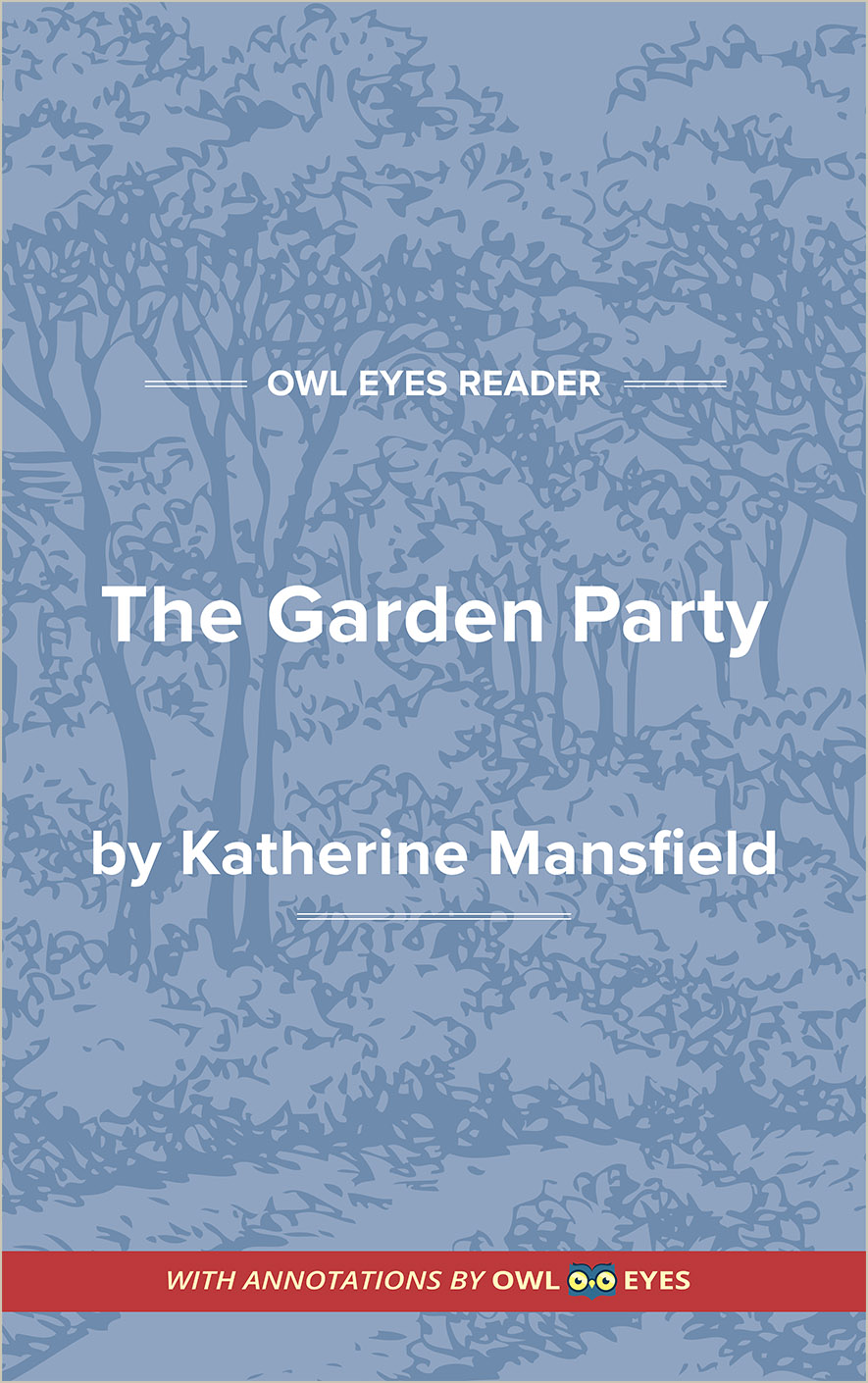Analysis Pages
Character Analysis in The Garden Party
Laura Sheridan: Often seen as an autobiographical depiction of a young Mansfield, Laura is described as more sensitive and artistic than the rest of her family. This is demonstrated by her reaction to the news of Mr. Scott’s death. While her other family members see no issue with the continuation of the garden party, Laura finds the festivities insensitive so close to the neighboring tragedy. However, Laura is distracted by the dazzling flowers of her new hat and is consequently enveloped back into the party atmosphere. Later, Laura experiences a major epiphany when visiting the Scott residence, as she is forced to contemplate the nature of death and the humanity of the working class. Returning home, Laura struggles to put her epiphany into words.
Mrs. Sheridan: Mrs. Sheridan is the matriarch and commanding figure of the Sheridan family. As the family sets up for the party, the readers get a sense of Mrs. Sheridan’s overwhelming influence over everyone’s actions. Guests and family alike ask her opinion on every detail from where flowers should be placed to what they should wear. When the family hears of the death, she expresses detached pity for her working-class neighbors. But she dismisses Laura’s sympathetic response to cancel the party stating: “People like that don’t expect sacrifices from us.” Unlike her daughter Laura, Mrs. Sheridan is a static character. However, she orchestrates Laura’s final epiphany. Mrs. Sheridan sends Laura to take leftovers to the poor grieving family after the party has ended. Her actions and statements throughout the story create the impression of a privileged woman of the upper class who is largely sheltered from the troubles of the poor.
Laurie Sheridan: Laurie is Laura’s brother and the last character Laura speaks to at the conclusion of the story. Laura struggles to express her epiphany to Laurie, stating “Isn’t life—” to which Laurie replies “Isn’t it, darling?” Mansfield’s ambiguity leaves readers wondering if Laurie understands what Laura is trying to express.
Character Analysis Examples in The Garden Party:
The Garden Party
🔒"Happy... happy... All is well, said that sleeping face. This is just as it should be. I am content...." See in text (The Garden Party)
"She had one of her brilliant ideas...." See in text (The Garden Party)
"Laura helped her mother with the good-byes. They stood side by side in the porch till it was all over...." See in text (The Garden Party)
"and I can't understand how they keep alive in those poky little holes..." See in text (The Garden Party)
"gold daisies..." See in text (The Garden Party)
""You won't bring a drunken workman back to life by being sentimental," she said softly...." See in text (The Garden Party)
"Nobody expects us to...." See in text (The Garden Party)
"what the band would sound like to that poor woman..." See in text (The Garden Party)
"Stop the garden-party, of course..." See in text (The Garden Party)
"Mrs. Sheridan's voice floated down the stairs. "Tell her to wear that sweet hat she had on last Sunday."..." See in text (The Garden Party)
"Wait. I'll ask Mrs Sheridan..." See in text (The Garden Party)
"wonder at him caring for things like that—caring for the smell of lavender. How many men that she knew would have done such a thing?..." See in text (The Garden Party)
"she didn't feel them..." See in text (The Garden Party)
"They were like trees you imagined growing on a desert island, proud, solitary, lifting their leaves and fruits to the sun in a kind of silent splendour..." See in text (The Garden Party)
"Well, for her part, she didn't feel them...." See in text (The Garden Party)
"practical Jose..." See in text (The Garden Party)
"copying her mother's voice..." See in text (The Garden Party)
"Wherever you looked there were couples strolling, bending to the flowers, greeting, moving on over the lawn...." See in text (The Garden Party)
"She blushed and tried to look severe..." See in text (The Garden Party)

